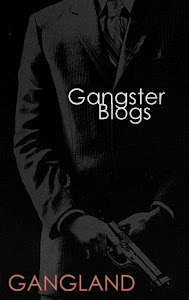Last week's conviction of four gang members on racketeering charges accounts for just a handful of the the Brown Pride Locos who have been arrested and jailed, said an investigator who helped build the case and make the arrests.
Over the past 18 months, investigators put together a case against six of the Bradenton gang members. One was convicted last week, and three others pleaded guilty to racketeering and conspiracy. Two others are being held in jail in lieu of $1 million bond while they await trial.
Those now in jail and awaiting prison sentences are:
Juan Carlos "Lazy" Hernandez, 22
Jessie Scott "Bola" Fuentes, 18
Raul "Sleep" Mondragon, 21
Moises "Cartoon" Antunes Jr., 23
The two still awaiting trial are:
Natalio "Lonely" Deleon, 22
Jason "J" Molina, 25
Building a Case
This is the second roundup of Brown Pride Locos gang members since B. Pieper, a gang investigator with the Bradenton Police Department (he declined to give his full name to protect his identity), began working with the department in 2003.
Pieper said that he helped capture Brown Pride Locos gang members in 2005 and 2006. Each time law enforcement officials make a gang arrest, he said, they learn something that helps them build stronger cases, making it easier prosecute the gang members on racketeering charges.
Racketeering requires law enforcement to show the connections among criminals and between the crimes they commit. Making the connections shows that a group is organized specfically for criminal activity, Pieper said.
Pieper said that social media has even helped them identify and capture gang members who will brag about their crimes on sites like Facebook.
Building a racketeering case is important to law enforcement for a few reasons. Getting convictions on gang members for individual crimes tends to be difficult because victims are afraid to testify, or there are rival gang members who tend to mete out their own punishments, only escalating crime, Pieper said. And with every robbery that doesn't get prosecuted, the criminals are able to build their network.
"We have learned how to better link the criminals to their activities," Pieper said. "If four members do a home invasion and they get money and jewelry, then they have more resources to buy guns and drugs. They use that to try to rule the community by fear and intimidation."
An armed home invasion robbery carries a life sentence, but if victims don't testify the criminal cases can fall apart.
If authorities can catch gang members acting together on a number of crimes, such a drug deals, thefts or gun crimes they can use organized crime laws to build a case and authorities don't necessarily have to depend on easily intimidated witnesses to make their cases.
"I've known these kids for years have arrested them numerous times," Pieper said. "This feels great for everybody. These individuals are off the streets."
Pieper said that the gangs made it impossible for families to live normal lives in their own neighborhoods.
One family told authorities that they simply wanted to have a cookout in their own yard, but because of gang activity, including shootings, they were afraid to spend time outside.
"Now that family doesn't have to worry about that," Pieper said. "There's a sense of closure for people who were afraid to testify. They see these guys are now in prison."
Winning convictions against the gang members means that they are out of the community and that police don't have to expend time, resources and assets following these particular gang members. It also sends a message to prospective gang members that the community and law enforcement will not tolerate gang activity.
"Every dog has his day. if we don't get you, the streets will," Pieper said. "There are only two outcomes in the gang world: prison or death. There's no such thing as an old, rich gang member."













0 comments:
Post a Comment